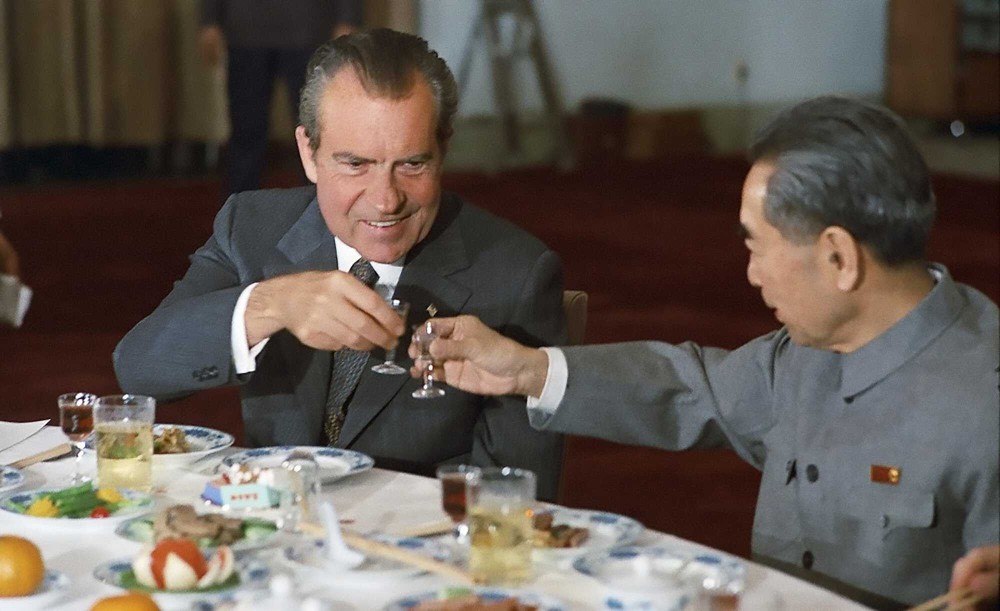“Assignment China” comes in two forms, video and a book. The video version available on YouTube is a 13-part series, the result of a prodigious effort to find 137 men and women who reported from China from the days of Mao to 2020, when the Xi administration chased Western reporters from their China beats by limiting or eliminating journalism visas. The book version (450 pages) is largely the transcripts of the TV and radio interviews including additional material that makes a story and chronological flow of that remarkable, too brief experience.

One frustrated professor in Germany wrote in his review: “This is not history. There aren’t even footnotes.” Right. This is not an academic study, but is closer to a “sausage factory” approach.
Mike Chinoy is the guide for both the video version and the book. Chinoy opened the first CNN Bureau in Beijing in 1987 and reported from China for CBS News and ABC News as well. He got the idea of a journalistic oral history of China after he too found himself barred from his China assignment.
Both the video and print versions were made possible by Chinoy’s collaboration with the US China Institute of the University of Southern California. Columbia University Press published the book.
As one reviewer put it, “the book is nothing short of a news junkie’s fantasy.” These are unusual looks into what some reporters call “committing journalism.” The reader and viewer follow the reporters’ recollections as they travel the modern arc of China’s development between the 1950s and 2020s, including some stories of the process of journalism.
The reporters are all from an era pre-internet, pre-social media, and the men and women who reported the growth of China are able to look back on their work with the kinds of perspectives that that have disappeared with the advent of 24/7 news.
President Obama’s trip to China in 2013 was an example. Expectations on the administration side were high and optimistic that the President’s open style would be a successful charm offensive. Instead a planned town hall meeting was hijacked by what amounted to censorship, and what was expected to be an open news conference also turned into a non-event. The Xi Jinping style of diplomacy was becoming what is now seen more characteristically as what is taken away than what is offered.
Melissa Chan of Al Jazeera tells of when she and colleagues were surprised to be invited to report from Xinyang , the majority Muslim Province in China. The reporters stumbled into a surprising example of protest when large groups of Uyghur women suddenly appeared as a protest against government suppression. The women somehow found out that Western reporters were coming. “The Chinese had gotten the invitation all wrong,” said Chan. They were quickly hustled away and that closed the door on any further access to the Uyghurs and Xinjiang Province. The fits and starts of China’s policy toward foreign reporting where in a brief transition that ended up closing off most access.
The cast of the TV series and the book is an all-star listing of many names that may be familiar: Stanley Karnow, Seymour Topping, Barbara Walters, Dan Rather, Melinda Liu, Nicholas Kristof, Joseph Kahn, Evan Osnos, David Barboza, Amy Qin, and Megha Rajagopalan, and more.
The Mao years seen from a reportorial experience include insights that are different from the books that historians and China analysts have produced. Anecdotal experiences reporting on historic moments such as Richard Nixon’s visit in 1972, China’s opening up to the outside world, its emergence as a global superpower, and the crackdowns in Tiananmen Square and Xinjiang. The video and print versions cover 80 years of history that changed the world.
As the period covered in the documentary recedes, the book and video are both a nostalgic trip with the men and women who reported from China during good times and bad, and also a reminder of the speed of change in a country that went from poverty and starvation to the second largest economy in the world today.

Even post Mao, journalists received ill treatment in China. I’m the 1990s I was traveling with a party of four. When I got to the Beijing airport, my three companions were quickly passed through immigration but I was held, threatened with immediate expulsion because I had written (truthfully) on my visa that I was a journalist. Not until I promised in writing not to report on my trip was I allowed to continue. At that, I suspected I was tracked on our 10 day visit.